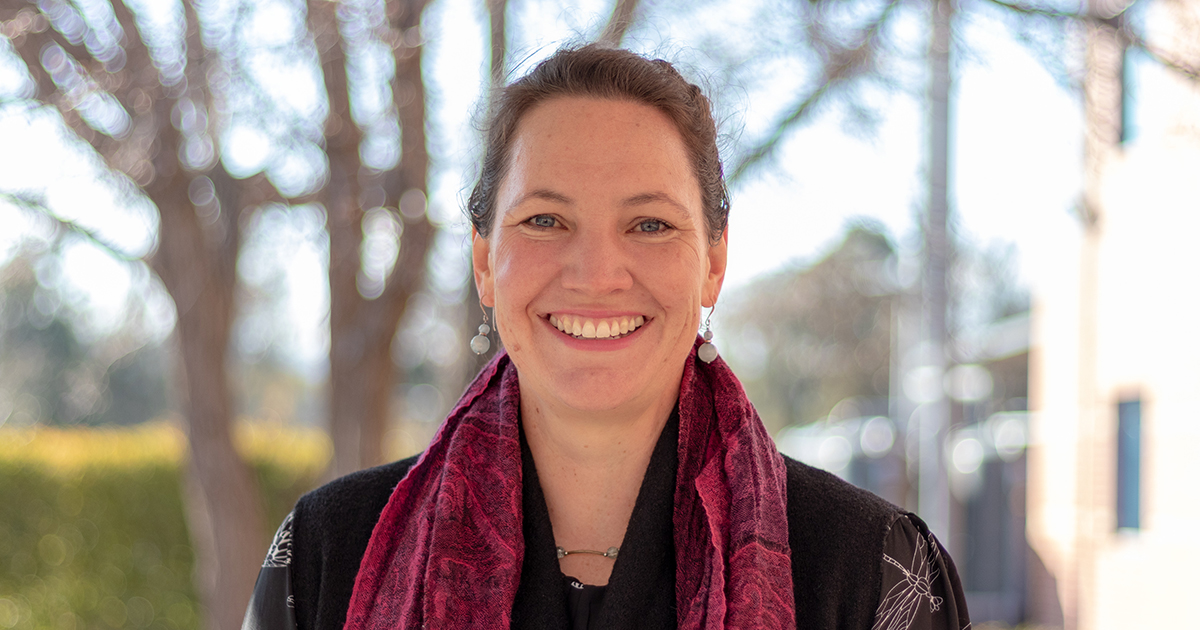AWA Water Ambassador inspiring action in the ACT

The Australian Water Association’s Water Ambassadors play an important role in improving water literacy and raising awareness of careers working with water, both during National Water Week and year-round.
Water Ambassadors help organise fun, interactive activities and share their experience and knowledge with school students, giving schools access to leading water professionals to complement their local water curriculum.
Icon Water Community Engagement Officer Kate Rhook became an AWA Water Ambassador because of her passion for water literacy and for protecting the ACT’s landscapes and waterways.
“I’ve been working in water education for over 20 years and have a real passion for working in water. I became a Water Ambassador to promote water literacy here in the ACT,” Rhook said.
“The health of our landscapes are essential to having good quality drinking water and we have some big challenges with climate change. We want to encourage our schools and the broader community to connect with National Water Week to raise awareness.
“Everything I do at Icon Water is about sharing key messages to ensure that we keep protecting our environment, and the health of the Murrumbidgee.”
Rhook said her aim as a Water Ambassador this year is to inspire students to take action to mitigate the impacts urban communities have on catchments, but also to support colleagues and the network of ACT water educators with more events.
“The theme of National Water Week this year is accelerating action. We are looking at inspiring action for change with students, but we also want to look at what the community can do,” she said.
“Involving the community and keeping them aware of this work is also important, and I am hoping to do a bit more of that this year as an National Water Week Ambassador.
“We look forward to hearing from educators and getting more people involved so that we can ultimately guide more students into a better understanding of our water.”
Engaging with schools
Icon Water engages with a lot of education around the water cycle, Rhook said, teaching students about where their water comes from, how to use it wisely, source protection, water saving and conservation, and climate challenges.
“Last year, Wanniassa Primary School reached out to us through our STEM network. We organised a whole-of-school session for National Water Week,” she said.
“We also had another opportunity with Garran Primary. One of our engineers visited to deliver a talk to students and showcase our catchment model.
“Having our team members visit schools and talk to students is also championing their work, too. The problem solving that goes on everyday at our treatment plants is amazing, as well as the operation management that goes into safeguarding water quality downstream.”
Rhook said Icon Water’s ongoing Free the Poo campaign has also created opportunities to engage with students around wastewater network health.
“We have also been doing a lot of work with Icon Water’s Free the Poo campaign, to help students understand what they can and can’t flush,” she said.
“This is really important for the protection of our pipes and infrastructure, but we also discuss the cycles through to treatment and then release downstream.”
Supporting teachers and young talent
Rhook said Icon Water’s asset site tours have always been a strong offering – giving students, teachers, industry, and the community the opportunity to learn about how the utility operates.
“Most of our programs are around on-site visits, but it's also about providing our teachers and educators to learn more and be involved,” she said.
“We do a hybrid program here. We run engaging education sessions for teachers to take the message back to the classroom. We do a lot of this work to engage local educators and teachers to help them with their understanding of the catchment and the issues we have with climate.”
Outside of school visits and site tours, Icon Water also facilitates a provocation challenge for budding young water minds, inspiring interest and passion for STEM related careers.
“Last year we worked with ACT Future skills to set a provocation to some very talented year 11 and 12 students from schools across the ACT. We asked: what does water look like in the year 2050 here in the ACT?” Rhook said.
“The students worked with host of talented spatial data experts with NASA and the Mount Stromlo Observatory to use spatial data to answer the question. There was an amazing caliber of STEM thinking involved, all focused around solving future water challenges.
“It was also a great way to provide some insight into what a career in STEM in the water industry might look like for them, not just in Canberra but across the country and internationally, too.”
Inspiring action
When it comes to helping young students learn about water, Rhook said exposure to engaging, hands-on activities, site visits and learning is the key ingredient in boosting water literacy.
“Back in the day, I worked as an ecologist in wetland restoration, bringing youth on Country to get involved in habitat recovery for species,” she said.
“I know from first-hand experience that getting kids involved in hands-on activities, and engaging them relatively young, leads to really effective learning.
“Our connection to water is so important. We are more that 70% water, and every six weeks we replenish our whole water system within our bodies. We drink the water to live, we are drinking the river, we are part of the river; the river is us. Sharing that connection and understanding with students about water stewardship is really vital.
“The kids really care and want to get involved and know what it is they can do to help. So this year we are aiming to give them tangible opportunities and activities to take action.”
Interested in becoming a Water Ambassador and connecting with schools across Australia to take part in boosting water literacy and careers? Become a Water Ambassador here.


